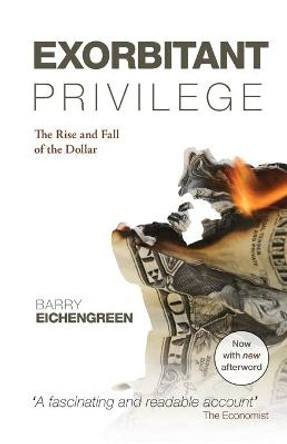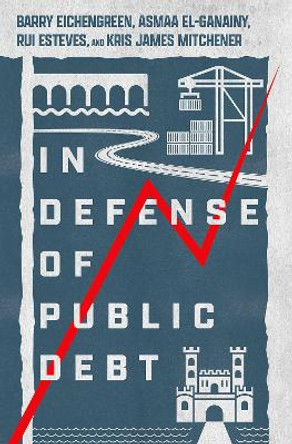For more than half a century, the dollar has been not just America's currency but the world's. It is used globally by importers, exporters, investors, governments and central banks alike. This singular role of the dollar is a source of strength for the United States. It is, as a critic of U.S. policies once put it, America's "exorbitant privilege." But now, with U.S. budget deficits extending as far as the eye can see, holding dollars is viewed as a losing proposition. Some say that the dollar may soon cease to be the world's standard currency, which would depress U.S. living standards and weaken the country's international influence. In Exorbitant Privilege, one of our foremost economists, Barry Eichengreen, traces the rise of the dollar to international prominence. He shows how the greenback dominated internationally in the second half of the 20th century for the same reasons that the United States dominated the global economy. But now, with the rise of China, India, Brazil and other emerging economies, America no longer towers over the global economy. It follows, Eichengreen argues, that the dollar will not be as dominant. But this does not mean that coming changes need be sudden and dire or that the dollar is doomed to lose its international status. Challenging the presumption that there is room for only one true global currency, Eichengreen shows that several currencies have regularly shared this role. What was true in the distant past will be true, once again, in the not-too-distant future. The dollar will lose its international currency status, Eichengreen warns, only if the United States repeats the mistakes that led to the financial crisis and only if it fails to put its fiscal and financial house in order. Incisive, challenging and iconoclastic, Exorbitant Privilege, is a fascinating analysis of the changes that lie ahead. It is a challenge, equally, to those who warn that the dollar is doomed and to those who regard its continuing dominance as inevitable.
About the AuthorBarry Eichengreen is Professor of Political Science and Economics at the University of California, Berkeley. His previous books include The European Economy Since 1945, Global Imbalances and the Lessons of Bretton Woods, Capital Flows and Crises, and Financial Crises and What to Do About Them. He has written for the Financial Times, Wall Street Journal, Foreign Affairs, and other publications.
ReviewsA brisk and invigorating account of a century of international monetary developments ... extremely well informed, cogently argued...erudite and readable. * Andrea Boltho, New Left Review *
incredibly relevant work * Business Destinations *
Short and eminently readable...In just 177 pages of text, [Eichengreen] provides a wealth of material for both the lay reader and the scholar...You can't do better than Eichengreen for a solid read on the dollar's wild ride. * American Prospect *
A truly superb book on the role and global standing of the dollar--past, present and future. Those exposed to the evolution of the global economy, and that's virtually all of us, will find his book extremely thoughtful and a great read.' * Mohamed El-Erian, CEO and co-CIO of PIMCO *
A fascinating and readable account of the dollar's rise and potential fall, * The Economist *
A rare combination of macroeconomic mastery, historical erudition, good political instincts and the sort of stubborn common sense that is constantly placing familiar problems in a new light. * Christopher Caldwell, Financial Times *
Timely.. elegant and pithy. * Harold James, Finance and Development, *
AwardsWinner of Shortlisted for the FT Goldman Sachs Business Book of the Year, 2011.
Book InformationISBN 9780199596713
Author Barry EichengreenFormat Hardback
Page Count 222
Imprint Oxford University PressPublisher Oxford University Press
Dimensions(mm) 241mm * 163mm * 24mm








